Biotope is a synthetic of two Greek words, “bios” and “topos”. Bios means life and top means place. It means a community of species that interact together at a scale.
Content Table
In the case of the aquarium, it’s a great concept that mimics the entire area condition within your aquarium. Tropical areas are famous for their higher temperature and excessive flora. Most of the aquarium fish are usually tropical. They are recognized for their colors, habits, and activities among aquarists around the globe.
The core purpose of setting up a biotope aquarium is to make inhabitants feel like the aquarium they are home. Besides the scenery, your fish will feel fresh, and there is more chance they will live for more time than in a traditional fish tank.
A biotope aquarium is more exciting than the traditional one. These aquariums depict more colors. They also require high maintenance and care. Therefore, not fit for those who are just starting their aquarium journey.
Why Biotope Aquarium?
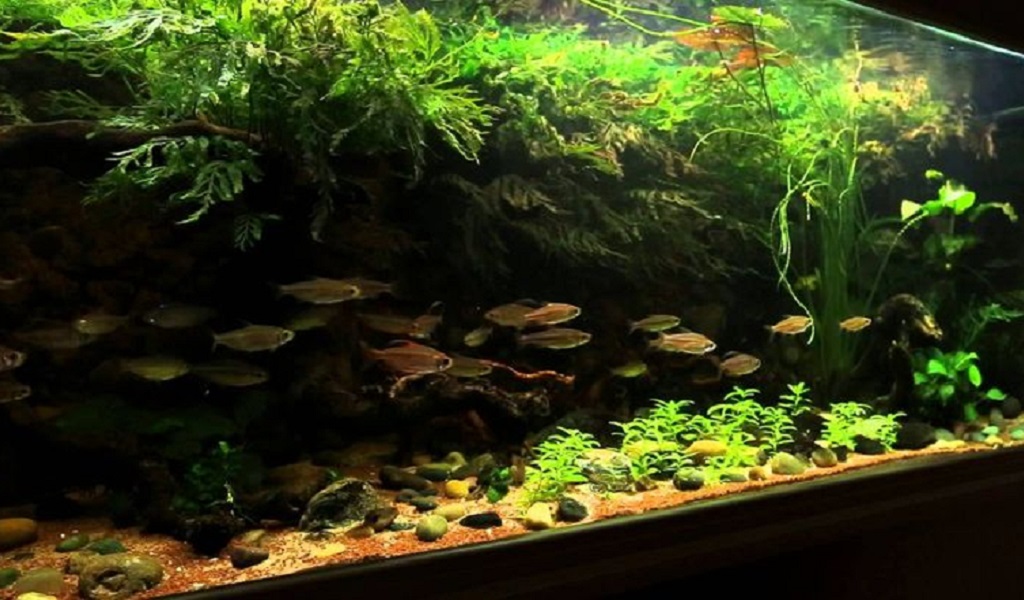
Biotope aquarium
There are multiple reasons to set up a biotope aquarium. Some of the salient causes are the following.
- The first and foremost reason is to make the aquarium’s inhabitants feel in their natural habitat.
- This is a great way to break the monotony and traditional aquarium rituals.
- It reduces the labor of aquarists as you only have to provide all of them with the same habitat conditions.
- Fish and other inhabitants feel fresh in their natural inhabitants. A biotope aquarium makes the inhabitants more excited and satisfied. It’s fun for the aquarists.
- If you are planning to step up in your aquarium journey, then biotope is the next level that is waiting for you.
Biotope Aquariums Ideas
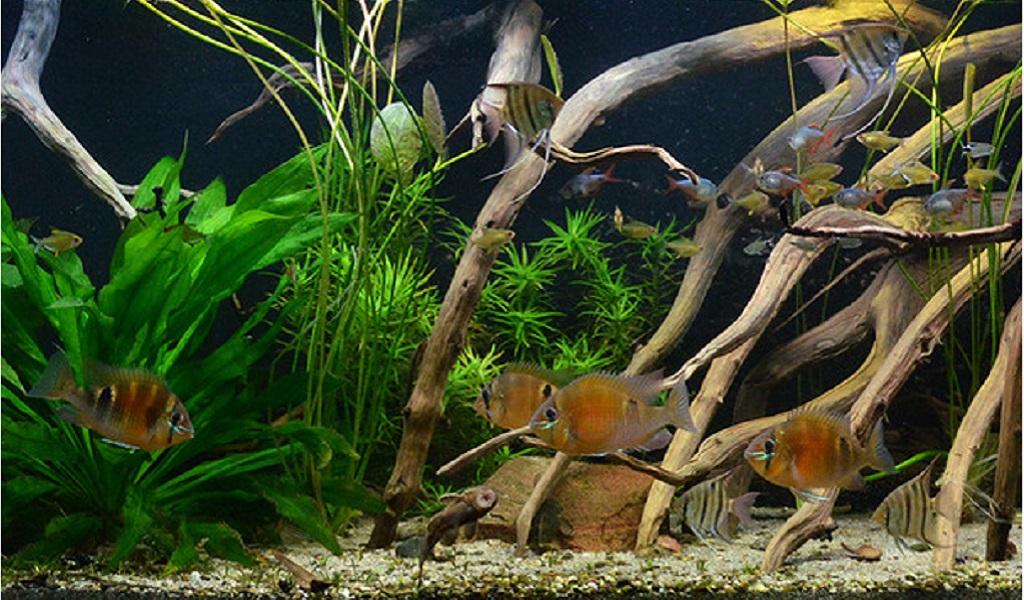
Biotope aquarium ideas
It depends upon the priority of aquarists and what they like to see. You have to keep in mind a few considerations before going to set up a biotope aquarium. Here in the following, you will find some biotope aquarium ideas and tips for setting up a biotope for tropical freshwater fish.
1. Swamp aquarium
A Swamp biotope aquarium is a gift for those who love to see a mixture of land and water, i.e., marshy areas in their tank.
2. Savanna biotope aquarium
It’s a biotope that consists of water and plants. Mainly such biotopes are characteristics of tropical and sub-tropical areas. If you are going to stock tropical fish in the tank, then there is no match with the Savanna biotope aquarium.
3. River biotope aquarium
It’s one of the easiest aquariums to mimic. It simply mimics the river habitat. Create such an environment that you like tropical or sub-tropical.
4. Jungle biotope aquarium
A densely vegetated aquarium perfectly matches a jungle biotope aquarium. It is best to stock small species that are otherwise often on the verge of danger in any other biotope aquarium.
5. A rocky reef biotope aquarium
Rock and reef in the fish tank will create a rocky reef biotope.
6. Lake biotope aquarium
A water tank with a still or a little moment in the water perfectly mimics the lake biotope aquarium.
Features of A Biotope Aquarium
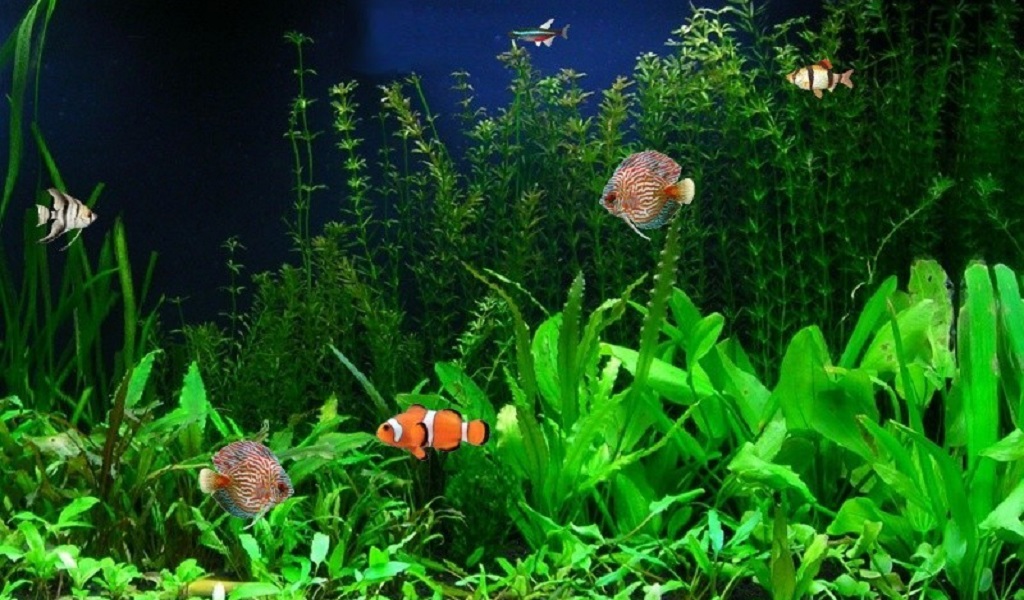
Biotope aquarium
A biotope is a mimicry of the natural habitat of aqua pets. How they live there, how they interact there, and many other things. There are many considerable things that you have to see before setting up a biotope aquarium. Here in the following, you will learn about the salient features of a biotope aquarium.
1. Plants
Research that are the plants in your desired biotope region. If the plants are available, then what kind of flora is present? It’s necessary to use similar flora in your aquarium.
2. Rocks
The other major step for setting up is to collect information about the surface. Is it a rocky region for which you want to create a biotope? It’s an excellent option to use stone as a bedrock or background rock to set up a natural habitat.
3. Water
Water is the foremost thing to be considered while setting up a biotope. Consider the water parameters of the desired biotope region, i.e., pH, temperature, and water hardness. The volume of water you want to add depends on the size of the tank.
4. Substrate
The substrate is also a variable feature among different types of biotopes. A variety of substrates are available that you can use in the fish tank, i.e., gravel, sand, wood, stones, and branches. You can use these substrates with varying concentrations.
5. Lighting
It is another worth considering factor. Installing a planted aquarium light can help to replace the sunlight in your biotope, some light even can show the color of the fish and improve plant growth.
6. Fish tank
Last but not least, a fish tank is the most significant factor in setting up a biotope. It depends upon the size of the biotope that you want to replace.
How to Set up a Tropical Biotope Aquarium?
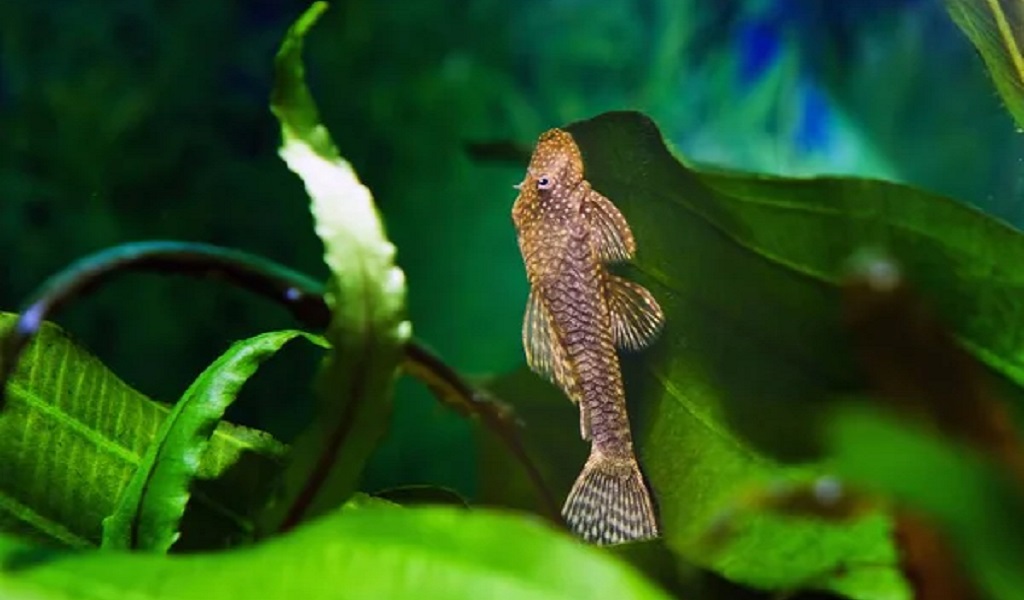
Biotope aquarium
Tropical areas are riched with multiple fish species and versatile biotopes. It’s interesting to set up a tropical freshwater biotope aquarium, although it requires numerous considerations. Here in the following, you will find some popular types of biotopes and how to set up a biotope aquarium for them.
1. African River Rapids
The rapid region is part of the Zaire watershed. The Zaire River almost extends up to 200 miles in the Rapid area. It is the inspiration of many aquarists to create a biotope aquarium. Here are some key aspects that you should consider while setting up the rapid region biotope aquarium.
- Plants
The rapid region is famous for its strong water currents. Due to strong water currents, it’s almost impossible for plants to grow in such water conditions. A few plant species can survive in high water currents, i.e., African Water Fern and Anubias. So, if your aquarium is well anchored, you can grow them into your aquarium.
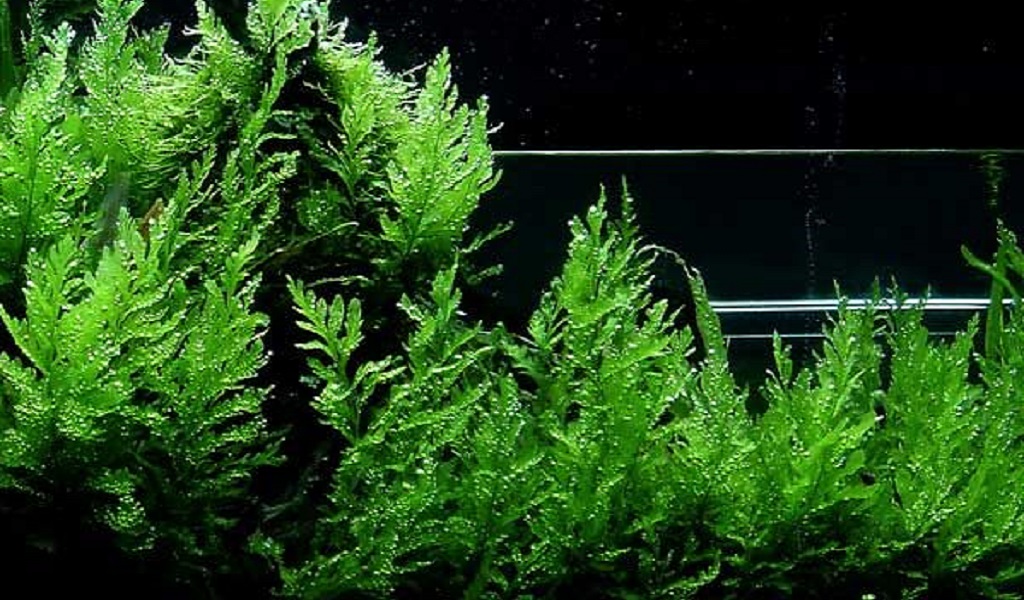
African Water Fern
- Aqua pets
There are very well-known species that are the inhabitant of rapid region biotopes. You can stock Eutropiellus, Distichodus, Synodontis, Steatocranus, Teleogramma, and Lamprologus in your fish tank. But keep in mind, select the peaceful and unique size fish species among them.
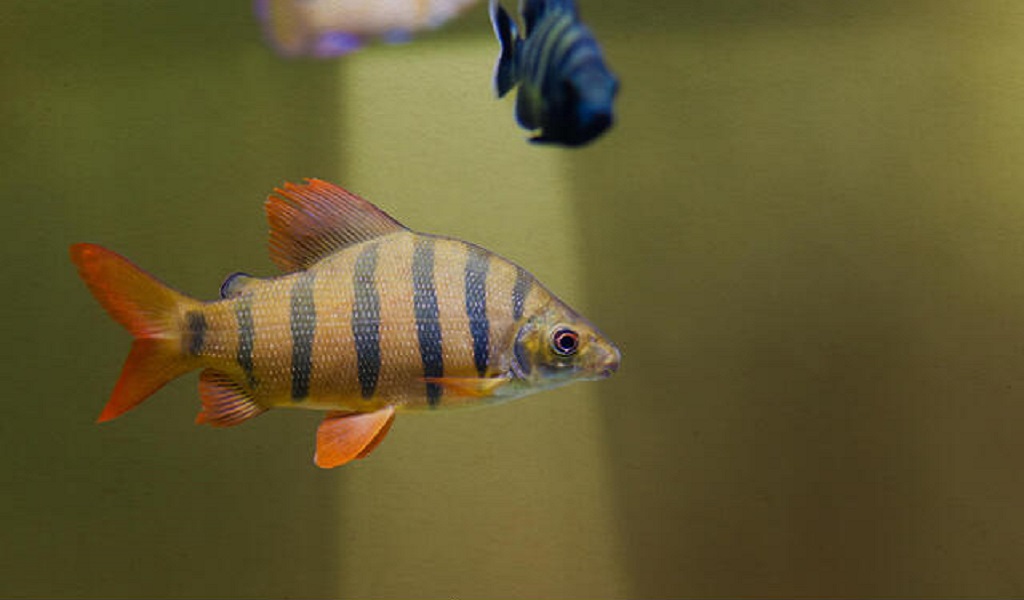
Distichodus
- Water
Water currents are very high means that water is well-oxygenated. Keep pH between 7.0 to 7.5, water hardness between 6 to 10 dH, and a water temperature between 77oF to 81oF.
- Tank
It’s necessary to provide them with ample swimming space. Therefore, set up the bio in a relatively large aquarium, i.e., a 75-gallon fish tank.
- Tank accessories
The rapid region is famous for its high water currents. Water currents create turbulence in the water. This means that the water is well-oxygenated. Therefore, your aquarium should be well-aerated. For proper air circulation, use a powerful circulating pump in your aquarium.
- Substrate
Use a few rocks in the aquarium to give a natural touch to your biotope. Sand and gravel are the most suitable substrates for the rapid region biotope tank.
2. Southeast Asian River
Southeast Asia is another famous tropical region of the world. It’s also a house of numerous fish species. It’s interesting to develop a biotope of the Southeast Asian river region.
- Plants
These are the plain areas where the water speed drops to its extreme limit. Therefore, the biotope is densely populated with multiple plant species. You can grow the following plant species in your fish tank Crinum, Ceratopteris, Hygrophila, Cryptocoryne, and Nymphaea.
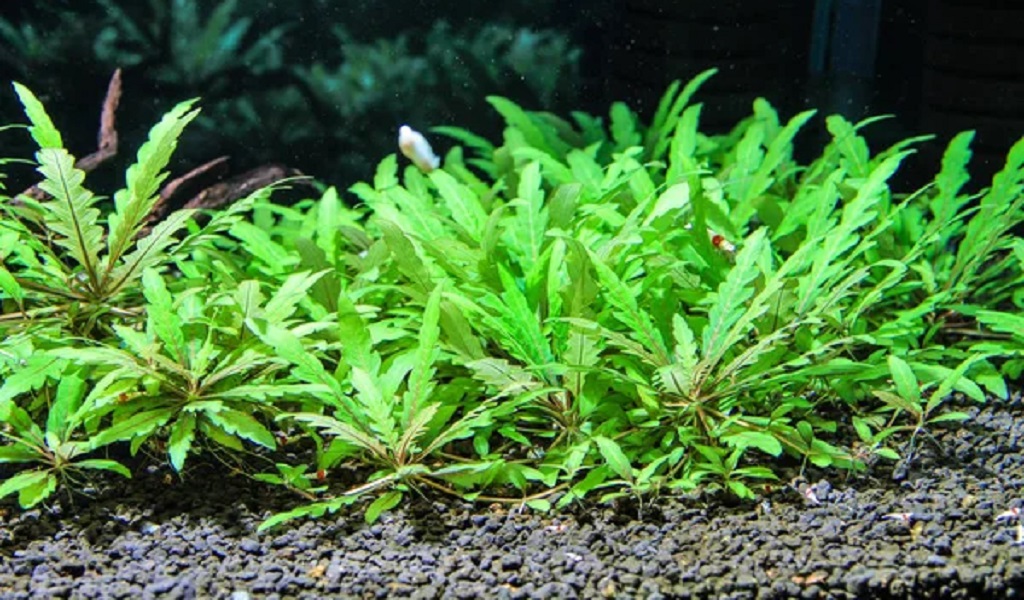
Hygrophila
- Aqua pets
Tropical regions are full of breathtaking fish colors. So, it’s amazing to set up a Southeast Asian river biotope aquarium. You can stock the following types of fish Loaches, Barbs, Danios, Cyprinid sharks (Red-tail, Bala, etc.), Pangasius catfish [suitable only for extra large tanks], small Asian catfish, and Knifefish. But keep in mind that stock is always the same size fish.
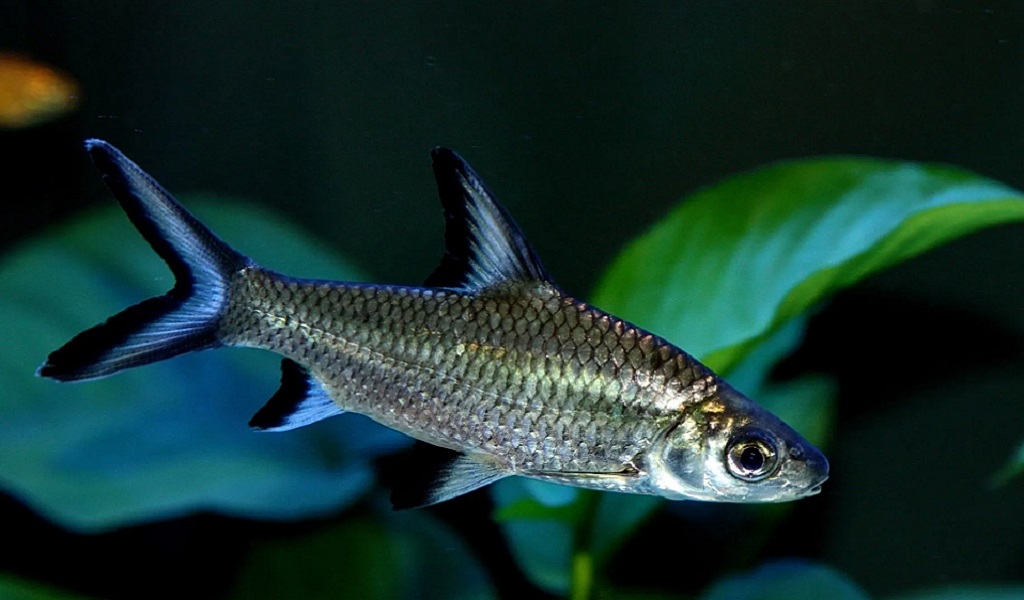
Cyprinid shark-Bala shark
- Water
Slow-moving water is the trademark of these regions. You have to keep the water parameters in an optimum range. The suitable pH for such a biotope is 6.0 to 6.5, water hardness is 2-8 dH, and water temperature is 79oF to 84oF.
- Tank
You can set up such a biotope with any fish tank except a nano fish tank.
- Tank accessories
It is not required to install many accessories. The filter and water circulating pump are enough. You have to make it thickly forested.
- Substrate
The suitable substrate for such a biotope tank is fine gravel or sand.
3. Indian/Burmese River
Although India is a tremendously populated country, it’s a great inhabitant of many fish species. This tropical region is the house of multi-color fish. It spans the Brahmaputra River, Cavally River, Ganges, Indus, Krishna River, Chilka Lake, Chittar River, Godavari, and Irrawaddy regions.
- Plants
The slow-moving water helps to grow the plants in this region. So, it’s wise to grow Rotala, Ceratopteris, Aponogeton, Eleocharis, and Blyxa in your fish tank.
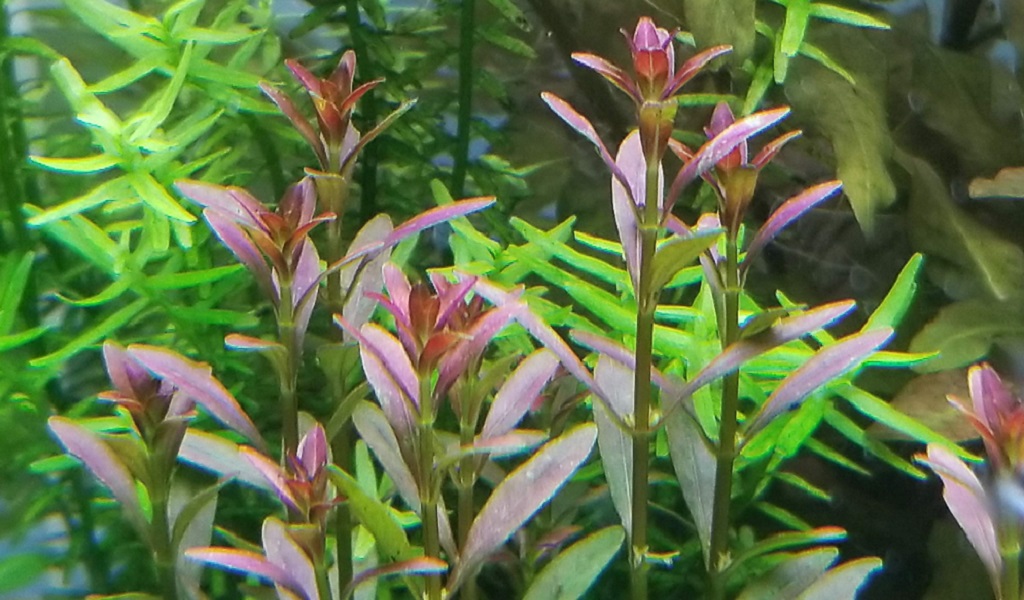
Rotala
- Aqua pets
As said, it is the house of large tropical fish. In the case of the biotope, you can stock Danios, Rosy Barbs, Colisa, Spiny eels, Climbing perches, Badis, Loaches, Gyrinocheilus, Chaca, and Glass catfish in your aquarium.
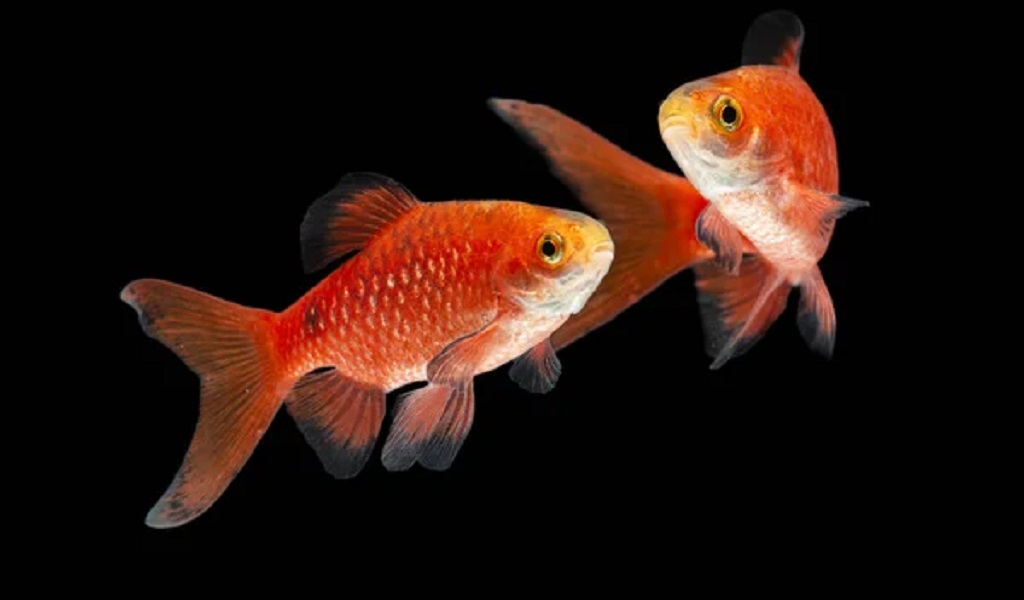
Rosy Barb
- Water
If you keep the water parameters within a suitable range, then you can enjoy the beautiful sceneries of your Indian/Burmese River’s biotope. The water is slightly acidic, i.e., 7.0 to 7.7. Keep the water hardness between 6 to 12 dH. Use a water heater that maintains the water temperature between 70oF to 75oF.
- Tank
It’s easy to set up such a biotope because it requires no high turbulent water. Make sure the tank is densely populated and has enough hiding spaces for the fish. Stock the fish according to the size and nature of the fish.
- Tank accessories
Lighting is the only thing you need other than the filter and water-circulating pump. Most of the fish species are surface inhabitants.
- Substrate
Use a few rocks in the aquarium to give a natural touch to your biotope. Sand and fine gravel are the most suitable substrates for the Indian/Burmese River biotope tank.
4. Southeast Asian Blackwater Pool
It is known as blackwater because the water source originated from rainfed forests. Such water passage adds decaying water leaves, vegetation, and minerals to the water. It makes it acidic and soft. Such a kind of water is a habitat for many species, of plants, and fish.
- Plants
The suitable plants for this tropical biotope are Cryptocoryne, Nymphaea, and Eleocharis. Aqua pets.
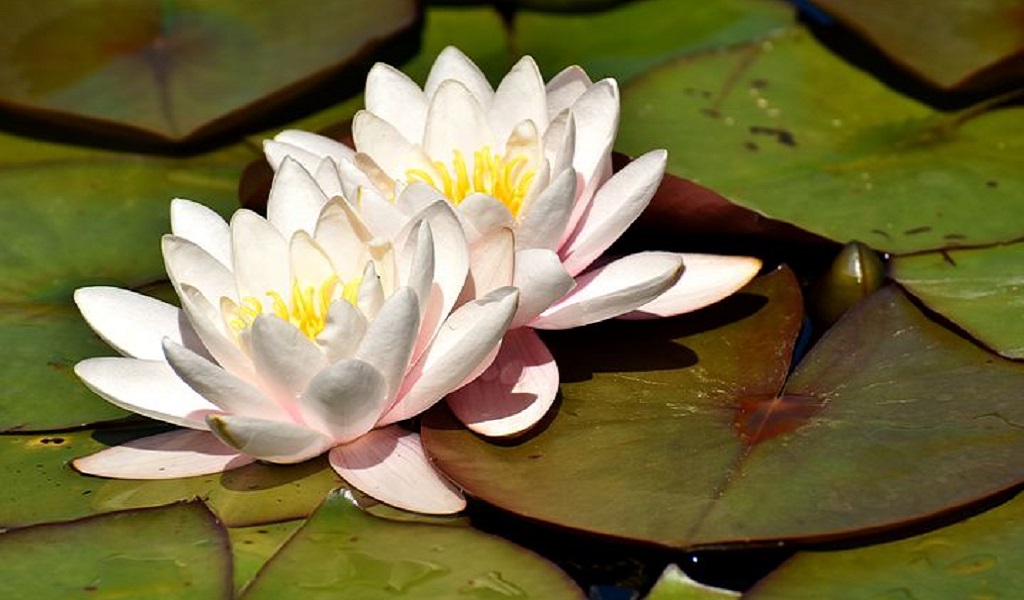
Nymphaea
- Aqua pets
Gouramis are at the top of the list for your biotope. Paradise Fish, Pearl Gourami, Harlequin Rasboras, Glass catfish, and any of the danios are the other most suitable fish species for your aquarium. You can stock Loaches, but there is an exception for them. Sometimes they grow to a large size. Therefore, come up with a large-size aquarium to stock Loaches.
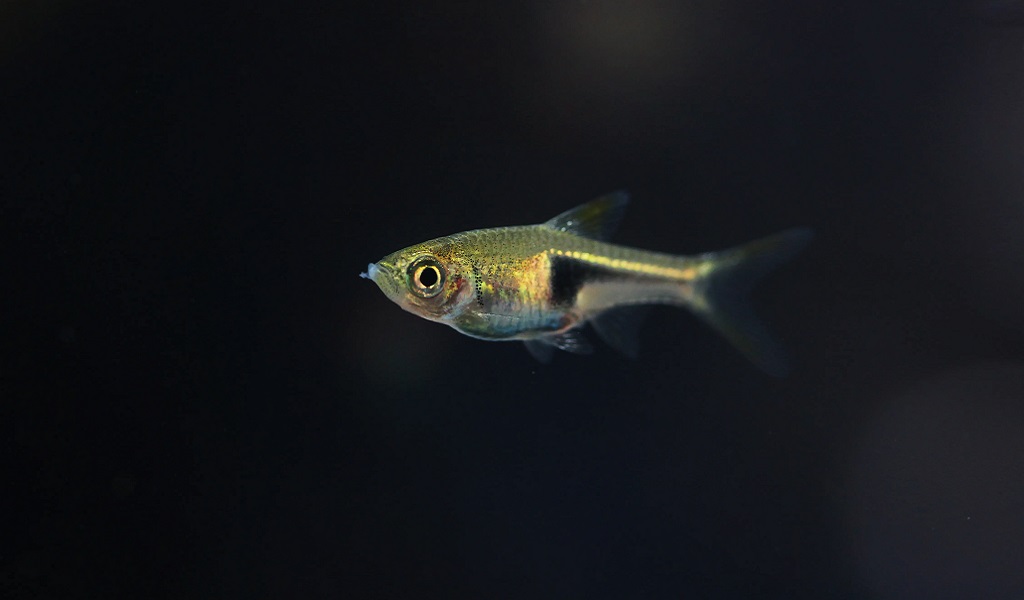
Harlequin Rasbora
- Water
Its water parameters are unique because the water of this river passes through rain-fed forests. Maintain the pH of water between 5.5 to 6.5, which is slightly acidic. Water is extraordinarily soft, i.e., 0 to 4 dH. Maintain the temperature between 81oF to 84oF.
- Tank
Make sure that your tank has enough hiding spaces for your biotope inhabitants. You can use whatever fish tank instead of nano.
- Tank accessories
Use the water circulation pump, which creates little surface turbulence for the exact match to their natural habitat. Use peat filtration to clean the water.
- Substrate
Add fine gravel or clay as a substrate in your fish tank. Also, make it thickly planted.
Conclusion
Biotope aquariums consist of species that live and interact in the same environment. It is different from traditional aquariums and requires extra care and maintenance. Multiple ideas are there to set up a biotope aquarium, i.e., Swamp aquarium, Savannah biotope aquarium, River biotope aquarium, Jungle biotope aquarium, rocky reef biotope aquarium, and Lake biotope aquarium.
Plants, rocks, water parameters, type of substrate, lighting, and size of the aquarium are the points to consider while setting up a biotope aquarium. African River Rapids, Southeast Asian River, Indian/Burmese River, and Southeast Asian Blackwater Pool are popular tropical biotopes among aquarists.
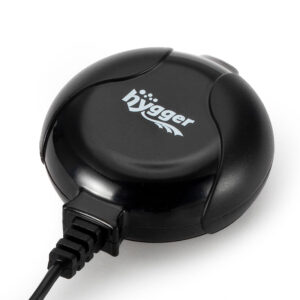
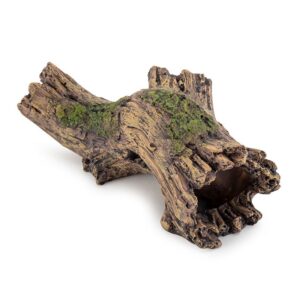
A great post without any doubt.